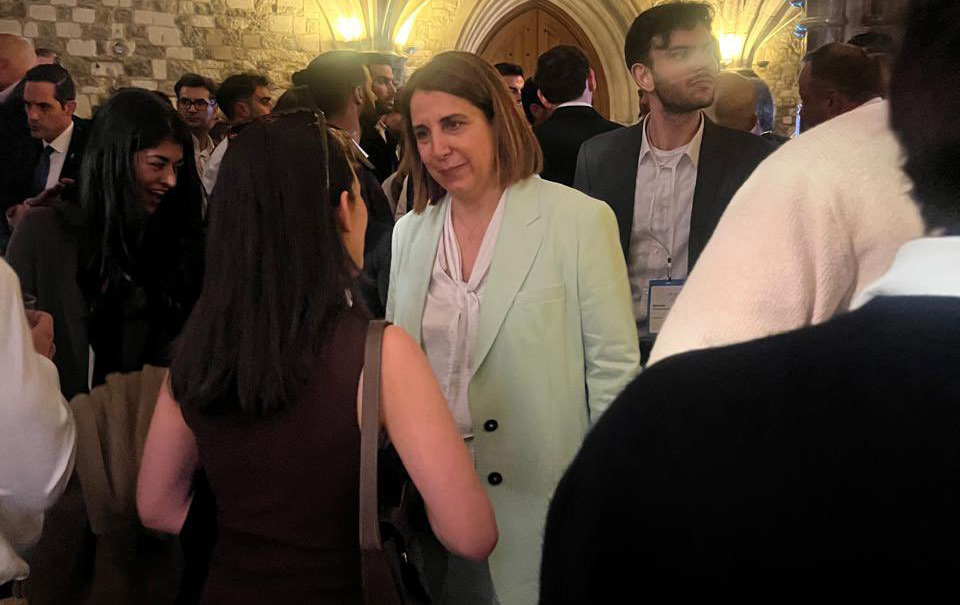Cyprus offers 50 per cent tax cut to lure back STEM Cypriots abroad, but will it do the trick?
Cyprus has launched its much-heralded new campaign to lure back skilled professionals from the diaspora, with generous tax breaks, digital tools, a growing number of tech jobs and a real tug at the heart strings.
With emotive statements like “Cyprus is changing, and it needs all of you” and “our homeland is always in your thoughts,” President Nikos Christodoulides unveiled the Minds in Cyprus initiative on Wednesday night in London, urging Cypriots abroad to return and help build the island’s future. The main emphasis was on jobs in the tech sector particularly in innovation, green energy and start-ups.
Backed by income tax reliefs of up to 50 per cent, fast-track support for families and a national digital platform linking job seekers with employers, the campaign signals a shift in Cyprus’ economic priorities from services to knowledge. The strategy is designed to reverse the brain drain and attract top talent in science, technology and finance, all key components of STEM (science, technology, engineering and maths).
“In the last five years, the contribution of the technology sector to GDP has increased by 80 per cent, reaching 14 per cent,” Deputy Minister to the President Irene Piki told the Sunday Mail after the event.
“We are moving from an economy of services to one based on knowledge. That means we need talent.”
What is Cyprus offering?
At the core of the plan is a revised tax regime. There is a 50 per cent income tax exemption for those earning over €55,000, if they’ve lived abroad for over 15 years. Moreover, there is a pending bill in Parliament proposing a 25 per cent income tax reduction on earnings up to €25,000, for Cypriots who have lived abroad for at least seven years and worked abroad for five.
“This is essentially the new tax movement,” Piki explained.
“It is designed as part of the campaign which started in London for the repatriation of minds and talents.”
Unlike other EU campaigns, she added, Cyprus places tax relief front and centre, while countries like Portugal and Romania focus more on job creation.
A new Mindset Service platform will allow Cypriots abroad to register their interests and receive targeted updates about jobs, housing, schools and relocation help. The platform is set to include vacancies in both private and public sectors.
Who are the jobs for?
The government’s emphasis is on STEM professionals, alongside roles in finance and innovation.
“Twenty companies participated in the event to meet young professionals,” Piki said.
“It’s not only about degrees. It’s about the skills these people bring.”
She added that Cyprus is now seen as a top destination for start-ups and tech hubs, with demand for roles in digital transformation, green technology and research.
Who attended the London event?
Over 850 people packed into the historic Guildhall in London to hear Christodoulides outline the initiative, while thousands more tuned in online.
Piki said this proved Cypriots abroad “want to return” and are open to new opportunities.
“Because Cyprus, beyond the sun and the sea, offers a competitive, stable, quality, and safe environment for a professional to live, work and develop,” Christodoulides said.

What was the reaction?
Reactions were mixed. Many praised the effort, but others questioned the narrow focus and lack of practical steps beyond tax breaks.
“The targeted professionals are those in tech and finance. But the only major change in Cyprus is they can now claim now tech is an employment sector – finance always has been,” said Eftychia Stephanidou, a 28-year-old native born Cypriot who attended the event.
“They kept saying they needed people who were good in tech, finance, science, that type of thing. But I don’t have a STEM background,” the multi-lingual policy advisor to the UK government told the Sunday Mail.
“Do they want people like me who did social sciences or humanities or the arts?” she asked.
“There was no mention of reskilling opportunities. If they’re serious, they should offer programmes to help people transition.”
She said the speech focused more on tax perks and lifestyle than on a broader strategy.
“It’s just a tax incentive, and then they say you’ve got the sun and your grandparents to help with the kids.
“They need to make Cyprus more liveable for people who’ve lived abroad and are used to a different standard,” she said.
“The public transport system and traffic are real problems.”
Piki acknowledged living costs are high but said Cyprus compares well to other capitals.
“In education and healthcare, London is more expensive,” she said.
“We’ve also seen increases in wages thanks to government policies.”
Maria Theocharou, a 36-year-old quantity surveyor, agreed that the particular focus on tech and finance, felt like it excluded other professions such as hers. But Theocharou said that the event overall was very professional.
“It was clear that the Cypriot government is committed to repatriating talented Cypriots which is impressive, considering other governments with similar brain drain issues do not have such a plan,” she said.
Nick Zachariou, 41, is a nuclear physicist and so could be viewed as one of the targeted demographic. As a father with two young children he is considering the move.
“Events like Minds in Cyprus are a valuable opportunity to engage with the country’s leadership and see that meaningful incentives and strategic plans are being put in place to attract talent back home,” he said.
“But while these are necessary steps, the key hurdle remains unchanged: finding a fulfilling job. For many of us, that doesn’t just mean any job – it means a career aligned with our skills, ambitions, and the impact we want to make.
“In my case, that would involve a career shift, and the ecosystem to support such transitions is still developing. Minds in Cyprus is a great starting point, but the challenge ahead is ensuring that the jobs available are as compelling as the vision being shared.”
Stephanidou also noted that many, many full diaspora Cypriots who grew up in the UK turned up to the event.
“They dream of working remotely in Cyprus or joining an international company there. But they were disheartened and felt excluded when Christodoulides gave his speech in Greek since they couldn’t understand what he was saying,” she said, adding that their Greek is basic. The following speeches and presentations were all in English.
The 28-year-old was particularly impressed with the speech by the deputy minister for technology and research Nicodemos Damianou who focused on the start-up ecosystem in Cyprus.
“He said when he returned to Cyprus as a young man, there wasn’t anything like that. He gave a good speech,” she said, mentioning that now Cypriots can find ‘professional challenge’ in their careers in Cyprus. “It’s not just cushy managerial jobs anymore. He kept emphasising how much Cyprus has changed in that regard.”
Can Cyprus compete?
London-based start-up investor Demetrios Zoppos, co-founder of 33East, which gets funding from the European Investment Fund and Bank of Cyprus to finance start-ups in Cyprus, also spoke at the event.
He said that while tax perks are necessary, they’re not enough to put Cyprus ahead of global rivals.
“Tax alone is not going to be the thing that basically brings people,” he told the Sunday Mail.
“We have to be competitive internationally.”
He pointed to other hubs like Lisbon and Dubai offering similar benefits, stressing that Cyprus must step up in other areas, particularly in supporting founders and securing investment.
“The obvious constraint is lack of financing,” he said.
“But the main one, in my view, is the lack of international experience for the founders.”
Still, he sees Cyprus’ small size as an asset.
“It’s easier to network and find mentors. That’s a real advantage.”
The future of work also offers Cyprus a unique opening, he added.
“Technology is changing the face of work and also the way we work, especially post-Covid with people working in a more flexible way. Having a hybrid type of work opens up more opportunities for people to have a connection with Cyprus.”
What’s next?
Piki said the feedback gathered in London will be used to improve the Minds in Cyprus initiative.
Some parts of the strategy still await parliamentary approval, including tax benefits and the full rollout of the Mindset Service platform.
But the direction is clear. It’s a shift from brain drain to brain gain.






Click here to change your cookie preferences